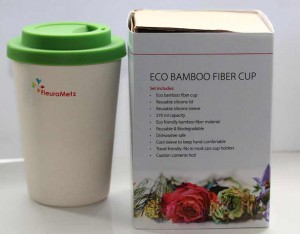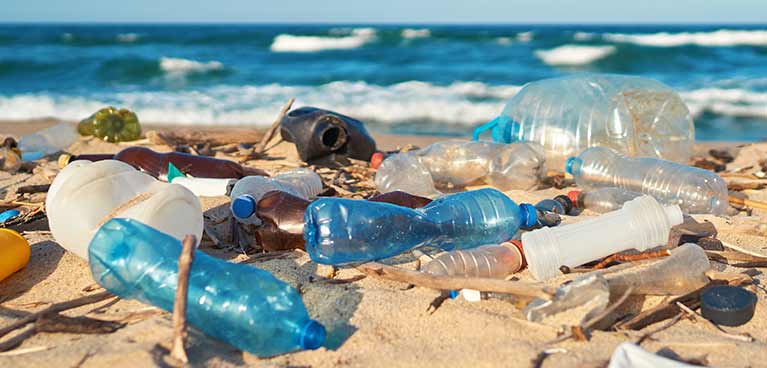Dr. David Bek, Reader in Sustainable Economies
Professor Benny Tjahjono
We reach for plastic unthinkingly, as postwar gardeners once reached for nicotine and DDT.
Sally Nex, in Royal Horticultural Society magazine, ‘The Garden’, March 2019
As the above quote vividly indicates, the tide is turning in terms of public attitudes to plastics thanks in no small part to the disturbing imagery featured in David Attenborough’s Blue Planet II TV series (BBC 2019). Public campaigns, policy debates and corporate strategies are all increasingly focusing upon ‘the plastics crisis’. In this blog we consider the following questions:
- Why is plastic so prevalent in our lives?
- What are the problems associated with plastic use?
- What are the options for overcoming these problems?
Plastics are synthetic or semi-synthetic materials made from natural products such as cellulose, coal, natural gas, salt and, of course, crude oil. Since 1964 annual global plastics production has increased 20 fold to over 300 million tonnes and is expected to double by 2035 and quadruple by 2050 (WEF et al. 2016).
So why is plastic so prevalent?
Simply put, plastic is incredibly useful. Plastic products are used in an astonishing range of ways in the modern economy due to their versatility, light weight and durability. As a result, they are used for many economic activities including packaging, construction, transportation, healthcare, and electronics. Roughly 15% of the weight of a modern car is plastic for example. Whilst plastic food packaging is controversial, it enables foods to last much longer thereby reducing food waste – cucumbers last several days longer due to the tight film wrapping put around them.
So what’s the problem?
The most publicised negative impacts are those upon natural sea and landscapes. Blue Planet II highlights ‘plastic islands’ in the oceans and the dreadful effects of discarded plastic upon marine life (BBC 2019). The ratio of plastics to fish in the oceans is currently 1:5, this is projected to reach 1:1 by 2050. At least 8 million tonnes of plastic leak into the sea each year (EAA 2018).
There are also concerns about the impacts of plastics upon human health due to the presence of substances of concern within plastic compounds (CIEL 2019). Burning, for example, has the potential to release impurities and additives. As yet, the full impacts of these substances, which we come into daily contact with, are not fully understand.
However, the biggest impact is upon climate change (IPCC 2018). Greenhouse gas emissions result from production and after-use incineration. In 2012 emissions from production and after-use pathways amounted to 390 million tonnes of C02. If growth trends for plastic use continue then plastics sector will account for 15% of the global annual carbon budget by 2050. The plastics industry uses about 6% of the world’s oil production – equivalent to the oil consumption of the global aviation sector. Such a direct contribution to climate change via fossil fuel use is the most worrying aspect of plastic usage. We argue that reducing the Carbon Footprint of the plastics industry is by far the biggest research and policy imperative due to the far reaching impacts of climate change upon all aspects of life on the planet (IPCC 2018).
So, what are the solutions?
The Ellen MacArthur Foundation (WEF et al. 2016) proposes a New Plastics Economy which is based on circular economy principles incorporating the 3Rs:
Reuse: creating an effective after-use plastic economy
Recycle: drastically reducing the leakage of plastics into natural systems
Renewable sources: decoupling plastic from fossil feedstocks by switching to renewable sources.
 Global recycling rates for plastics are very poor. For example, 300-400 million plastic plant pots end up in landfill in the UK each year (HTA 2019). Why? Due to a combination of inadequate council recycling schemes, consumers not bothering to recycle and design issues. Black plant pots are a scourge as recycling machines cannot sort them due to their black pigment, so they get sent to landfill. Some great innovations are being made to tackle this problem such as the fully recyclable taupe pot which has been designed via an initiative led by the Horticultural Trades Association (HTA) and is already achieving significant market reach in the UK (HTA 2019). Whilst in Germany, manufacturer Pöpplemann have designed a fully recyclable plant pot made from recycled materials – the Circular Economy in action!
Global recycling rates for plastics are very poor. For example, 300-400 million plastic plant pots end up in landfill in the UK each year (HTA 2019). Why? Due to a combination of inadequate council recycling schemes, consumers not bothering to recycle and design issues. Black plant pots are a scourge as recycling machines cannot sort them due to their black pigment, so they get sent to landfill. Some great innovations are being made to tackle this problem such as the fully recyclable taupe pot which has been designed via an initiative led by the Horticultural Trades Association (HTA) and is already achieving significant market reach in the UK (HTA 2019). Whilst in Germany, manufacturer Pöpplemann have designed a fully recyclable plant pot made from recycled materials – the Circular Economy in action!
Decoupling fossil fuel feedstocks offers many exciting possibilities. Plastics and plastic alternatives made from products such as cassava and seaweed are already under production, although much more research is required to fully understand issues such as the environmental impacts of their production, consumer acceptance and their ability to match the functionality of petrochemical based versions.
Plotting a way forward
There is no doubt that change is needed in the plastics economy. Actions need to come from a range of stakeholders and urgently. The 3Rs framed around the Circular Economy proposed by the MacArthur Foundation offers a productive way forward for commercial actors, policy makers and consumers to follow.
We urge a focus upon initiatives that will have the most impact, not just those with the most public appeal. Efforts to reduce use of plastic straws and plastic bags are to be applauded as symbols of commitment, however their impact in the wider scheme of things is limited. We need to improve the overall sustainability of plastic production and consumption. This will require focusing upon initiatives that have the most impact, especially in terms of cutting Carbon Footprints. This will require strong will and hard decisions from policy makers, entrepreneurs and consumers.
This content for this Blog was informed by Dr. David Bek’s participation in the International Association of Horticultural Producers (AIPH) conference entitled ‘Plastics in Ornamental Horticulture – Creating a Sustainable Supply Chain’, held on 2nd April 2019 in Noordwijk, the Netherlands. David’s presentation can be accessed via the links in the reference list below.
References
BBC 2019 The dangers of plastics in our oceans, clip from Blue Planet II
David Bek 2019 Keynote Address to the International Association of Horticultural Producers (AIPH) Sustainability conference. Can be accessed as a video.
Centre for International Environmental Law (CIEL) 2019 Plastic and Health – Rethinking the cost of a plastic planet.
European Environment Agency (EAA) 2018 Close up – An Ocean of Plastics
Floraculture International 2019 ‘Industry stakeholders discuss plastics in ornamental horticulture’
Horticultural Trades Association (HTA) 2019 Plastic Pot Initiative – the Taupe Pot
Intergovernmental Panel on Climate Change (IPCC) 2018 Global Warming of 1.5 degrees, Special Report
Mintel 2019 EU takes a stand against plastic packaging
Sally Nex 2019 Quitting the Plastic Habit, in Royal Horticultural Society Magazine, The Garden, March 2019
World Economic Forum (WEF), Ellen MacArthur Foundation and McKinsey & Company, 2016 The New Plastics Economy — Rethinking the future of plastics




Comments are disabled